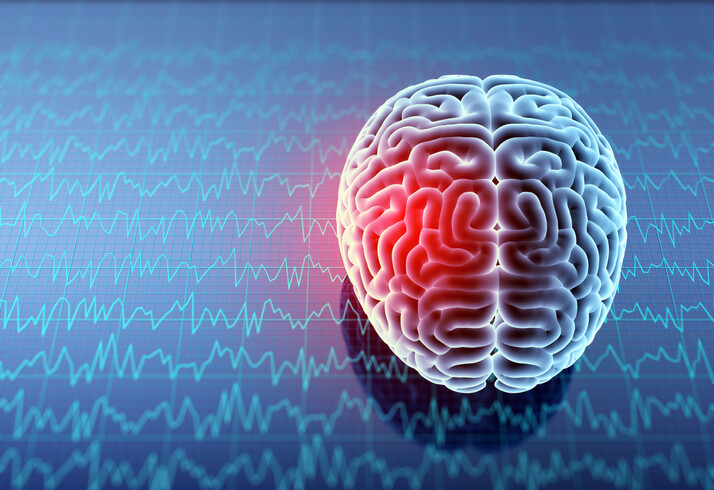Despite the raised public awareness of concussions occurring, many people often ask what physically happens to their brain when they have a concussion or suffer a traumatic brain injury. In particular, can you have a concussion without losing consciousness? Do you need to hit your head on something to suffer a concussion? Also, does your brain physically change from a concussion? In this article, we will discuss some of these questions that our clients ask our traumatic brain injury attorneys.
Learn more about our Sacramento Brain Injury Attorney Services.
Can you have a concussion without being knocked out?
 Your brain is made of soft tissue cushioned by spinal fluid and protected by the skull. When your head is jolted in any way, there is a chance that your brain moves around and can be bruised, sustain nerve injuries, or even damage blood vessels.
Your brain is made of soft tissue cushioned by spinal fluid and protected by the skull. When your head is jolted in any way, there is a chance that your brain moves around and can be bruised, sustain nerve injuries, or even damage blood vessels.
Many people do not lose consciousness when they sustain a concussion. That is because your brain may have contacted your skull during the jolting event and could be bruised or damaged without you losing consciousness. Additionally, when your brain is jolted, different parts of your brain can be moved at various speeds, which stretches or “shears” nerve tissue, called a “diffuse axonal injury.” The head movement can be either straight-line, like in a rear-end car crash, or even rotational, like in a T-bone car crash that caused your car to rotate. There is a higher probability of being knocked out with a rotational crash than a straight-line crash since your brain is stretched in multiple directions. Sometimes, these injured nerves can recover, and other times, they cannot. These “shearing” forces cause many concussions.
Do you have to hit your head to sustain a concussion or a traumatic brain injury?
If you were knocked out unconscious from a strike to your head, even for any small amount of time, there is an incredibly high probability that you sustained a concussion, which, according to the Centers for Disease Control, is a type of traumatic brain injury. However, you do not need to be struck in the head or have your head hit something to sustain a concussion.
Indeed, strikes to the head sustain most concussions, but many do not. It is possible to maintain a concussion from your head simply moving or changing direction quickly as if you were running at full speed and then getting tackled chest-high. If the impact suddenly stops your forward momentum, your head can snap forward abruptly, causing your brain to move to the front of your hard skull, possibly causing damage. Another example is sustaining a “whiplash” type injury in a car crash that causes a shock due to your head being snapped back and forth without striking anything.
Does my brain physically change from a concussion?
Yes, your brain physically changes due to damage from a concussion. There are a few common reactions that your brain does when it is damaged during a concussion.
When you sprain your ankle, it swells up with fluid. The same thing happens when your brain is damaged and there is increased pressure in your brain. Unlike your ankle swelling up, your skull doesn’t let the extra fluid go anywhere, so the pressure increases inside your skull. This pressure can be dangerous if not treated, as it can disrupt blood flowing correctly through your brain, which can cause more damage. If this occurs, the treating physician tries to control and decrease the pressure in your skull to prevent further injury to your brain.
Your brain is full of neurons and neurotransmitters that allow the different parts of your brain to talk to each other. These neurons and neurotransmitters only work correctly if your brain’s chemistry is correct. When your brain sustains a concussion, the chemistry of your brain can be changed, and these neurons and neurotransmitters are unable to function and prevent the different parts of your brain from communicating with each other. That can cause changes in your behavior, mood, and thinking. Depending on the severity of your concussion, it takes some time for your brain to get its chemistry back to normal.
Your brain is a fantastic thing. When you are growing up or learning new things, your brain forms new connections between neurons, which allows it to carry new information around. When you are concussed, some of these neurons may be damaged. Your brain can physically adapt to these injuries by forming new neurons and pathways around your brain to help get around the damaged areas. This process takes a while, and it can take weeks, months, or even years to recover from a concussion. Doctors who specialize in concussions can provide treatment and therapy to help forge these new pathways.
Suffering a traumatic brain injury, including a concussion, can be a life-changing and scary event. If you think you may have suffered a concussion or a traumatic brain injury, you should seek medical care. The very fact that your brain has been injured should persuade you that your ability to self-diagnose has been impaired.
If your concussion or traumatic brain injury was caused by the negligence of another person or occurred while on the job, we hope you will contact one of our brain injury attorneys in Sacramento for a free consultation.
The information provided on this blog is for informational purposes only and not a substitute for professional medical advice, diagnosis, or treatment. Always seek the advice of your physician or other qualified health provider with any questions you may have regarding a medical condition. Never disregard professional medical advice or delay in seeking it because of something you have read on this blog.
